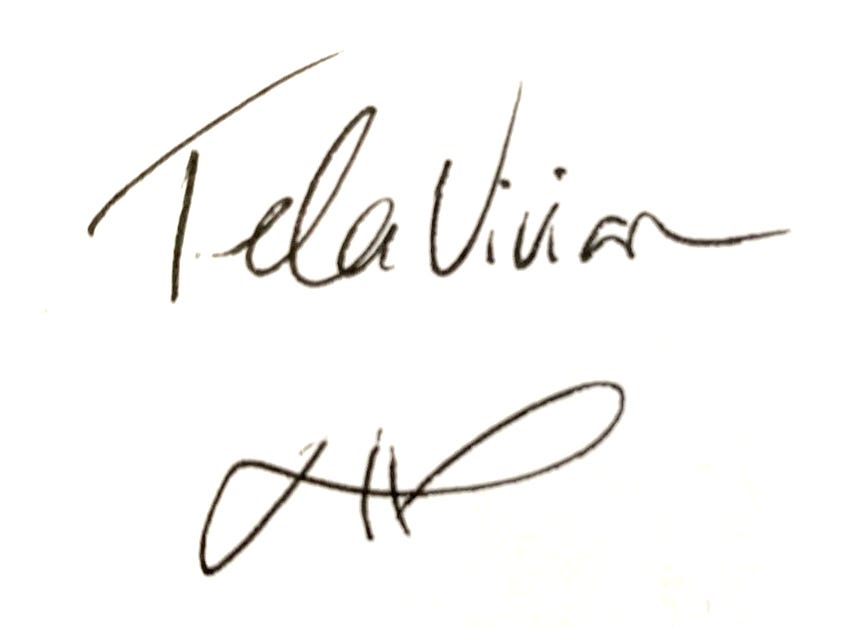TelaVivian on the Road: Toronto - Tel Aviv – Odesa – Kyiv -Chisinau
It has been a harrowing week in Israel as the nation pauses for the weekly sabbath. Vivian Bercovici offers a brief review of the high and low lights and sneak peak at what’s coming soon.
It’s been a trippy five weeks for me and I was thrilled to finally touch down on Wednesday afternoon in Tel Aviv. Anti-government groups had declared a Day of Disruption throughout Israel and, truth is, I had no idea how I would get to my home in central Tel Aviv from Ben Gurion airport. Highways were blocked and train stations in Tel Aviv closed due to tens of thousands converging on Israel’s largest city and economic engine to protest the government’s judicial “reforms”.
As it happened, minutes before my taxi hit the road the police reopened the Ayalon, the constantly jammed highway that bisects Tel Aviv on a north-south axis, and there was not a car in sight. As my driver quipped: ”They clear the Ayalon for the president of the United States and for you!”
I was home in a jiffy.
The intensity and velocity of events has been overwhelming recently, even for Israel. But the murder of two Jewish brothers last Sunday in the northern West Bank village of Huwara, shot at point blank range while sitting in their car, stuck in traffic, was the catalyst for a spiral of unspeakable horror.
Within hours of their killing, settlers turned to social media to organize a revenge attack on the village. Homes and vehicles were torched, terrified townsfolk were beaten. One was murdered. Elderly villagers were trapped in their smoke-filled homes, afraid.
Until Sunday, Huwara was a bustling market town frequented by Jews and Arabs, but the army has ordered it to be shuttered. It is a silenced, charred shame on the nation.
So much is unclear about what went down in Huwara. For a deeper dive into what we think we know, listen to the State of Tel Aviv podcast, Episode 2, dropped yesterday. Political analyst extraordinaire - Haviv Rettig Gur - and I do our best to clarify the chaos of these last few days.
What have we become? As a nation? As a people?
In the coming days we will be delivering a variety of content on the podcast, some short AV clips on social media and our website stateoftelaviv.com and, of course, good old print.
As the country descends into a violent abyss – as President Herzog warned this week – there are also dire economic consequences of this unrest that are not receiving nearly enough attention. The political instability created by the madness of ill-considered judicial “reform” has spooked international investors and money managers. The shekel is battered, hundreds of millions of dollars of planned investment in Israeli tech is being deferred and large amounts of capital are flowing out of the country.
PM Netanyahu tends to smear all who oppose his destructive agenda as “leftists.” In one broad slap he dismisses business leaders in Israel and abroad, former governors of the Bank of Israel (many of whom he recruited personally to the job), hundreds of economists, academics, professionals, high tech entrepreneurs and highly skilled workers, investors, artists, former IDF chiefs of staff, retired generals, heads of the Shin Bet. And then some. It is a diverse population, professionally, politically, religiously, socio-economically. The common denominator is that those opposing the imminent ruin of the modern state of Israel are economically productive and have invested their hearts, souls and capital in this national enterprise.
This is a battle for the soul of Israel. Do we want a liberal democracy or theocratic autocracy?
Early next week we will drop a brilliant essay jointly written by Eugene Kandel – former chairman of Israel’s Economic Council and Economic Adviser to Prime Minister Netanyahu - and Uri Gabai, an economist and long-time close professional associate of Kandel’s with extensive experience in the public and private sectors. Their current collaboration is as the visionaries and operators of Start Up Nation Policy Institute.
Google them. I cannot begin to do justice to their accomplishments here.
This power duo brings combined insight and knowledge that is unparalleled, and they explain the miraculous rise of the Israeli tech sector over decades. They also share their concerns regarding the potential negative effects that may transpire should the planned government legal reform legislation pass unchanged.
In my view – which seems to resonate in Israel and abroad these days - to flourish, an economy requires a free and democratic society. Modifying that foundation, in a flash, is a very high risk initiative. And it clearly undermines market confidence in the stability of the country. And yet, PM Netanyahu insists that all the "naysayers" will be proven wrong.
Capital – human and financial- are very mobile and Netanyahu understands that well. It will wait out the instability by working and investing elsewhere.
In addition to staying on top of whatever the coming week brings locally, I will be sharing fascinating vignettes from my recent trip to Ukraine – where I was hanging out with activist artists in Odesa and Kyiv – defiantly finding ways to express their personal and national struggles while staying sane and alive. And, of course, there is a Jewish connection. In some cases we discovered it together.
When I left Odesa on Tuesday, a musician acquaintance had just been called to the front lines, which are very close to the city. He left his violin with my friend, Julia, with careful instructions for what to do should he not return.
So much about Odesa and Ukraine felt familiar - aside from the borscht and blintzes - and not unlike what we are experiencing today in Israel; the determination to prevail and preserve their identity, nation, way of life. And the ever-present threat of total ruin; in one case from without, in another from within.
As a small group of us sat around in a café, washing down salted fish with shots of vodka, someone asked me: “What’s going on in Israel? Is it ‘just like always’ or is it different this time?”
“It’s different,” I answered. “We’re self-immolating.”
Shabbat shalom from the State of Tel Aviv.







"Until Sunday, Huwara was a bustling market town frequented by Jews and Arabs, but the army has ordered it to be shuttered. It is a silenced, charred shame on the nation." - This sounds a lot like what happened to Hebron's central market in the aftermath of Baruch Goldstein's murderous attack on Purim 1994. I hope the same thing doesn't happen to Huwara.